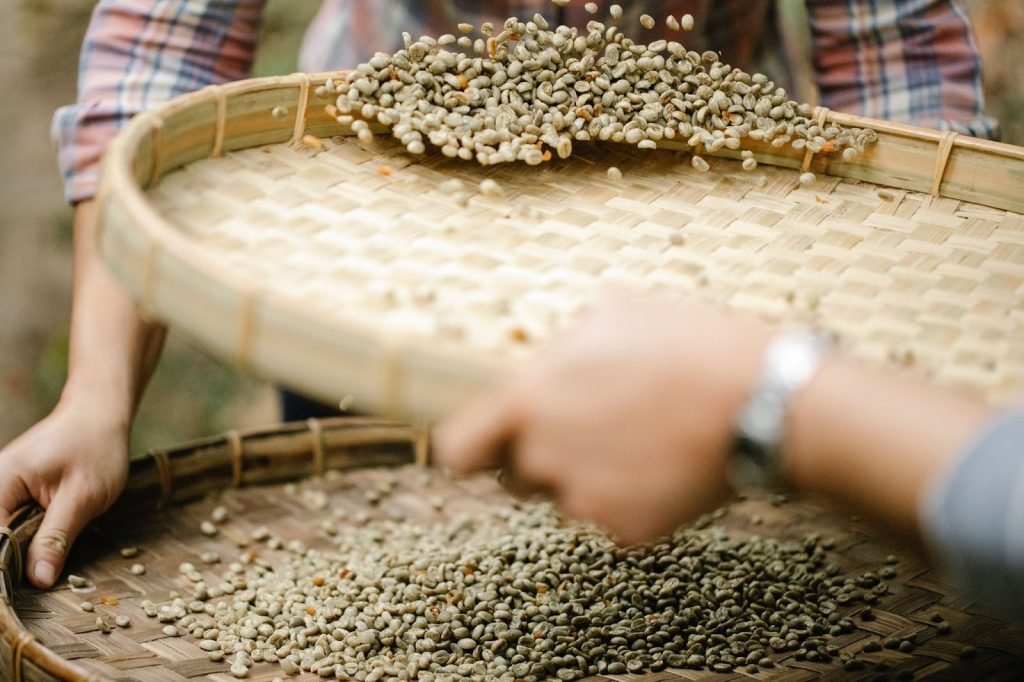Knowing the Uniqueness of Coffee from Various Regions in Indonesia – Indonesia, located in the heart of the Archipelago, is not only known as a stunning tourism destination, but also as one of the largest coffee producers in the world. In a game of enticing aromas and flavors, Indonesia has earned the title as the fourth largest coffee producer worldwide. This success is not only supported by the vast plantation land, but also by the geographical and cultural diversity that enriches each coffee bean that grows in its soil.
Aceh : Gayo Coffee
Gayo coffee, which originates from the Gayo region in Aceh, Indonesia, has certain uniqueness and characteristics that set it apart. Here are some of the characteristics of Gayo coffee:
- Balanced Flavor
Gayo coffee is often known for its balanced flavor of acidity, sweetness, and smoothness. This gives it a complex and satisfying flavor profile.
- Strong Scent
The aroma of Gayo coffee tends to be strong and seductive, often with hints of flowers, spices, or chocolate. This distinctive aroma can provide an intense sensory experience.
- Growing Height
Gayo coffee is generally grown at high altitudes, which has an impact on the flavor characteristics. The altitude can produce coffee beans that are denser and impart softness to the flavor.
- Processing Method
Gayo coffee processing can involve wet or dry methods. These methods can affect flavor characteristics, with wet methods tending to produce a cleaner, brighter flavor.
- Coffee Bean Varieties
Gayo coffee is often grown with Arabica coffee varieties, such as Gayo 1, Gayo 2, and Timtim. These varieties impart certain characteristics to the flavor and aroma of Gayo coffee.
Sumatra: Mandailing Coffee
Mandailing coffee, which thrives in the highlands of North Sumatra, presents uniqueness and characteristics that set it apart from other coffees. The beauty of this coffee’s flavor is rooted in the unique combination of coffee variety, climate, and distinctive processing.
1. Mesmerizing Scent
Mandailing coffee is known for its rich, spicy aroma, and sometimes a touch of chocolate. The authenticity and softness of this aroma create a pleasant experience for coffee lovers.
2. Full Flavor
The main characteristic of Mandailing Coffee is the full and heavy flavor on the tongue. The first sip to the last gives a deep impression, with a balanced touch of sweet and sour.
3. Distinctive Semi-Washed Process
Mandailing’s signature semi-washed or wet-ground processing gives the coffee beans their unique characteristics. This process brings out the natural flavors of the coffee beans, making them bolder and more complex.
4. Confluence of High Soils and Tropical Climate
Growing at altitudes reaching more than 1,000 meters above sea level, as well as a favorable tropical climate, gives Mandailing coffee its distinctive flavor. The high altitude lends authenticity and balance to the coffee’s flavor profile.
5. Traditions in Cultivation
Mandailing coffee farmers have for generations maintained traditions in coffee cultivation, from careful bean selection to meticulous processing techniques. This is part of the region’s inherent coffee heritage.
Java Coffee
Javanese coffee is unique and has characteristics that reflect its natural, cultural and historical diversity. Here are some of the aspects that make Javanese Coffee special:
1. Harmonious Flavor Combination
Javanese coffee often presents a harmonious combination of flavors, including smoothness, balanced acidity and a touch of distinctive sweetness. This combination creates a satisfying taste experience.
2. Specialty Varieties
The altitude and climatic conditions in some areas of Java favor the growth of specialty coffee varieties. For example, Java Arabica and Java Robusta Coffee provide unique flavor characteristics.
3. Processing with Traditional Techniques
Some coffee farmers in Java still use traditional processing methods such as sun drying. This gives the coffee beans a natural touch and affects the flavor profile.
4. Historical and Cultural Heritage
Javanese coffee has a rich historical heritage, closely linked to the Dutch colonial period. Javanese coffee culture is also reflected in the farming and processing traditions passed down from generation to generation.
Bali Coffee
Bali Coffee captivates coffee connoisseurs with its uniqueness and unique characteristics. Here are some aspects that distinguish Balinese Coffee:
1. Tropical Fruit Scent
Balinese coffee is often known for its distinctive aroma, often characterizing tropical fruits such as oranges and lemons. This fresh aroma gives the coffee cup an exotic touch.
2. Delicate and Earthy Flavor
The flavor characteristics of Balinese Coffee tend to be mellow and earthy with balanced acidity. It provides an inviting and approachable flavor experience.
3. Specialized Processing Process
Some coffee farmers in Bali apply special processing methods, such as the semi-washed or honey process. These processes can give the coffee beans unique flavor nuances.
4. Plantation Height
Most coffee plantations in Bali are located at varying altitudes, affecting the quality of the coffee beans. This elevation can give a more complex and rich flavor.
5. A Touch of Flower
Some varieties of Balinese coffee have an interesting touch of floral nuances. This creates an additional layer of flavor that adds to the uniqueness of this coffee.
Sulawesi : Toraja Coffee
Toraja Coffee, which originates from the high mountains of South Sulawesi, has unique and distinguishing characteristics. Here are some aspects that characterize Toraja Coffee:
- Strong and Deep Scent
Toraja coffee is known for its strong and deep aroma, often featuring nuances of spices, chocolate, and sometimes with a touch of fruits.
2. Diverse Flavors
The flavor characteristics of Toraja Coffee vary greatly, from full and heavy flavors to a touch of balanced acidity. Each sip provides a complex experience.
3. Traditional Processing Process
Most Toraja coffee farmers still use traditional processing methods, including sun drying and fermentation. These processes can impart uniqueness to the coffee’s flavor profile.
4. Plantation Height
Toraja coffee plantations are located in the highlands, reaching heights of up to thousands of meters above sea level. This altitude impacts the growth of the coffee beans and creates a distinctive flavor.
Indonesian coffee is not just a beverage, but a story about the dedication of farmers who care for their land, the traditions that continue to be passed down, and the natural beauty that gives each coffee bean its distinctive character. With all its uniqueness, Indonesian coffee not only presents a mesmerizing taste, but also embraces us in diversity.
Read the most comprehensive coffee articles on KopiKita and find out everything you need to know about the world of coffee, from the types of beans to how to brew them.









